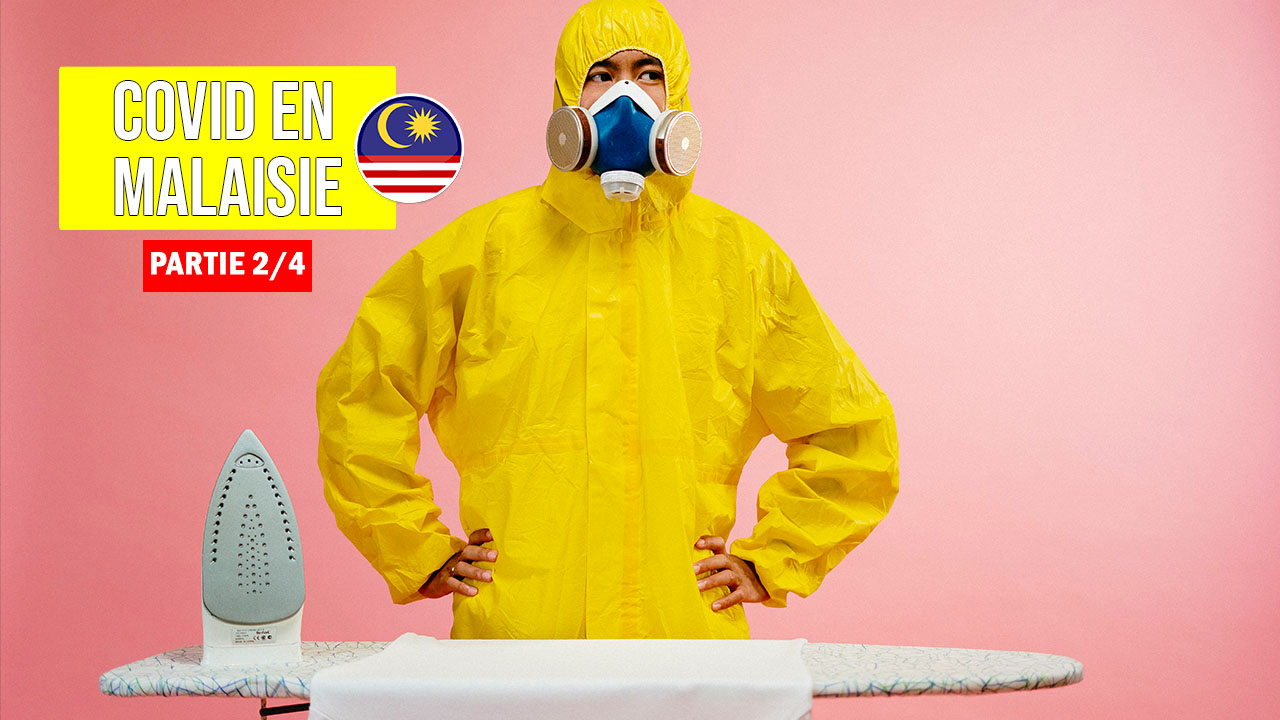Living with COVID Malaysia and in France: our experience
Between 2020 and 2022, we lived several months between France and Malaysia, but also several months in Turkey.
In this video, we will share our experience with you, and try to answer some of the questions we often ask:
- How is life in Malaysia from COVID?
- how is this health crisis being managed?
- what are the differences between France and Malaysia?
- Are vaccines mandatory?
- Masks, PCR tests, children, quarantine and restrictions: what are the differences?
We are going to detail different points of COVID MALAYSIA so that you can know more about this virus that manages in a totally different way, from one country to another.
Finally, we will finish with a quick look at COVID TURKEY, in order to compare the 3 countries.
0. Preamble
Our course
For those of you who don’t know us, we’ll quickly remind you of our journey over the last two years:
- We left France, in June 2020, in the middle of a health crisis, with a newborn baby, thinking that it would last a few months…
- Thus, we reached Turkey in June 2020, thinking to stay there for a few weeks, before we could reach Malaysia, which was our final destination. At that time, Malaysia had already closed these borders since March 18, 2020.
- After many months of waiting, we received our entry permit for Malaysia in November 2020: we stayed in Turkey for more than 5 months.
- Finally, we were able to enter Malaysia, in November 2020, and it has now become our primary country of residence.
One year later, in November 2021, we decided to visit family and friends in France.
Why have we decided to return in November 2021?
We have made this decision to temporarily leave Malaysia, for vacation and professional reasons, in November 2021.
The Malaysian government had lifted some restrictions, including the MTP request, which consisted of making a prior request to re-enter Malaysia if one decided to leave the country temporarily. With the DPW, there was therefore a risk of being denied return to Malaysia.
In addition to this, quarantine at home was again possible, again, subject to acceptance.
The quarantine in the hotel, at our expense, with 2 children, we can tell you that it is not pleasant at all.
But most of all, we were expecting the arrival of our second child, who was born in Malaysia in September 2021.
This is only based on our personal experience
What follows is based on our personal experience.
We are not COVID experts, we do not know all the restrictions, nor all the rules concerning COVID, either in Malaysia or in France.
However, we try to keep you updated on the progress, especially through our posts and stories on Instagram and Facebook.
In Malaysia, it was almost impossible at times, to know the rules, prohibitions etc. so much that it changed from day to day, constantly. Not to mention the famous “U-Turn”: official decisions that were made and then cancelled in the following hours or days… In short, it was all very confusing!
The purpose of our video
The purpose of the video is not to create endless debates, about vaccines, or different measures, but it is only to share our personal experience.
In France, for example, many cried dictatorship, rightly or wrongly.
On our side, during the first months of the virus outbreak, in 2020, and during our last stay in December 2021 and early 2022 (in the middle of the Omicron wave), we found that living in France was less constraining than in Malaysia, whether for the vaccinated or not…
This is what we will share with you in the following points.
Quarantine in Malaysia and France
Quarantine in Malaysia has changed a lot since we moved to Malaysia.
14 days of quarantine in Malaysia, in November 2020
In November 2020, when we arrived in Malaysia, the quarantine was taking place in a hotel.
It lasted 14 days.
Vaccines did not yet exist.
This hotel was :
- or selected randomly from a list of hotels, depending on availability,
- or we could choose our own hotel from a selection. This option was more expensive but usually offered PREMIUM hotels.
On our side, this is what we took, because we wanted to avoid any additional stress, especially with our daughter who was only 8 months old at that time.
So we chose a hotel in the center of Kuala Lumpur.
In our room, we can’t open the windows, so it’s impossible to ventilate or to take the air…
The meals were dropped off in front of our door: 3 times a day, the staff, all dressed in overalls, would drop off the meal trays, ring the doorbell and then rush to escape ????
7 days of quarantine in Malaysia, in January 2022
In January 2022, this has changed a lot.
Currently, we are still in quarantine, and fortunately, we can now spend it at home, subject to acceptance by the Malaysian authorities.
We do need to apply online, within 4-10 days before our arrival.
It is very stressful, because if we did not receive an answer in time, or if we received a negative answer, we would have been obliged to take a hotel, at our expense, or else participate in the program
Langkawi Travel Buble
which we will detail at the end of the video.
Finally, we get the authorization by mail, the day before our departure from Paris.
It is a 7-day quarantine for the vaccinated, 10 days for the non-vaccinated.
We were given an electronic bracelet, which allows us to be tracked and monitored at a distance: this bracelet is mandatory for all travelers coming from high-risk countries, such as France, with the Omicron wave.
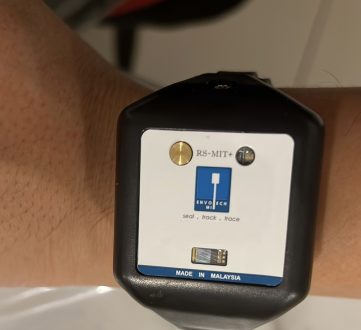
We are not going to complain, because compared to the first quarantine, it is much easier today.
We can’t leave our apartment, not to go shopping, not to pick up packages or meals.
Fortunately, we made arrangements with our residence security to have them bring us our groceries or meals ordered remotely.
We still hope that this Malaysian quarantine, in the coming months, will not become mandatory, especially for the vaccinated, as it is already the case in several countries including France, which we will see now.
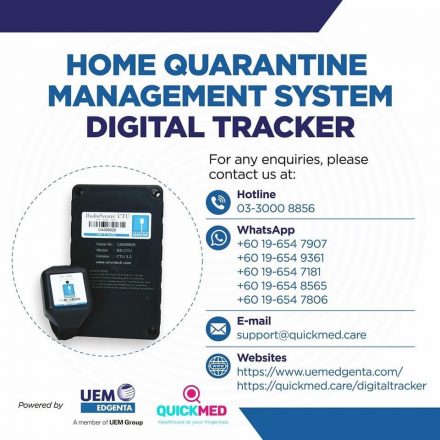
The quarantine in France, in December 2021
Before arriving in France, we stopped in Turkey for a week.
We wanted to take advantage of the fall of the Turkish currency to make some good deals, especially for children’s clothes.
But we do not know that Turkey was classified as a red zone by France.
A quarantine was therefore mandatory for all unvaccinated persons coming from Turkey.
We are vaccinated, but our vaccine is not recognized in France.
So we had to do a 10 days quarantine: we had to communicate the address where we wanted to spend the 10 days.
We spent it in Montreuil, in the 93.
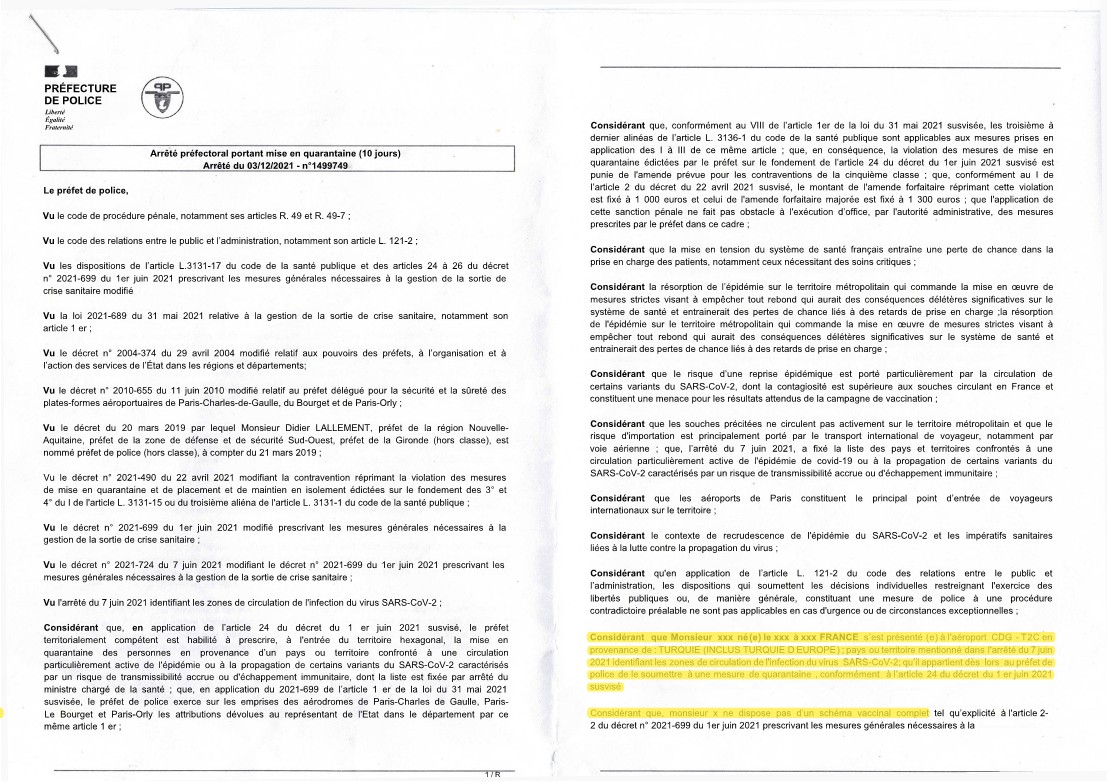
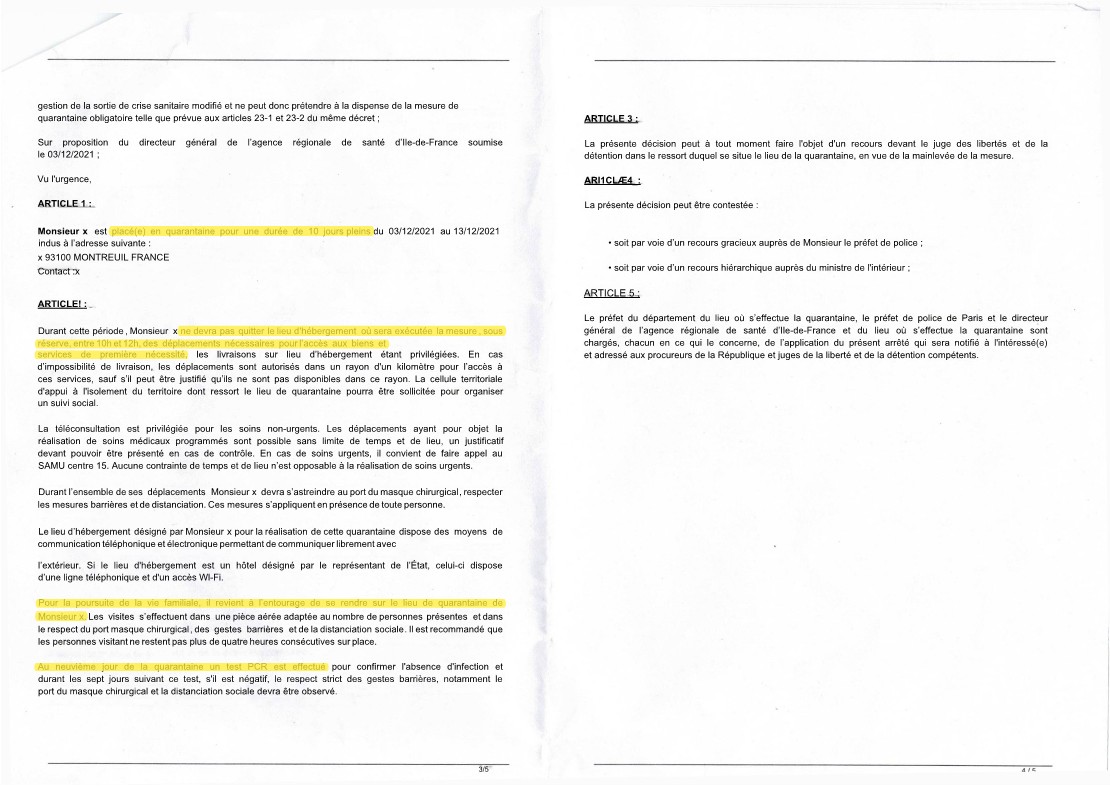
What are the differences with Malaysia?
Quarantine in France is much easier than in Malaysia.
In France, we could :
- choose the place for the quarantine,
- go out between 10am and 12pm,
- receive from the family.
We had a police check on the eighth day.
I had received a call from a masked number.
It was the police, who asked me to show up with an ID to verify that we were at our quarantine address.
Nothing more.
For the PCR test on day 9, no one checked it.
In Malaysia, currently, a PCR test is requested 48 hours before our arrival, then another one is done at the airport, then another one on the fifth day, and no chance to escape.
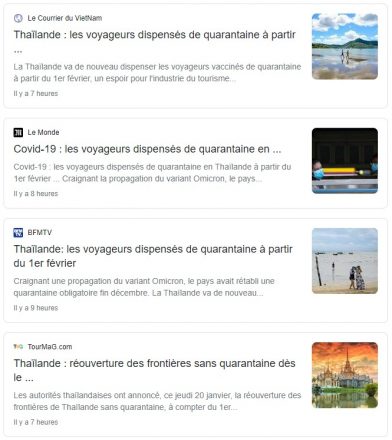
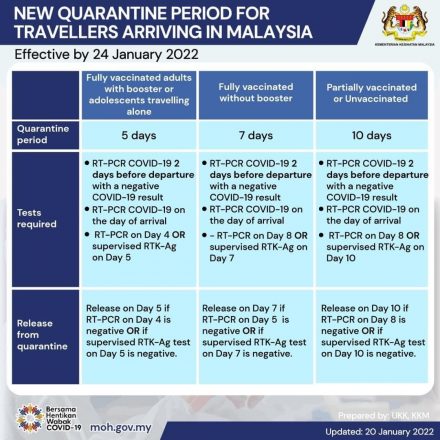
Wearing a mask in Malaysia and France
Wearing a mask is mandatory in Malaysia, whether outdoors or indoors.
And this, from the age of 2 years.
In France, the mask was no longer mandatory outside, for a while.
At the beginning of January, it became compulsory to wear it in some cities, such as Paris.
In France, the wearing of a mask is compulsory from the age of 6 years, against 2 in Malaysia.
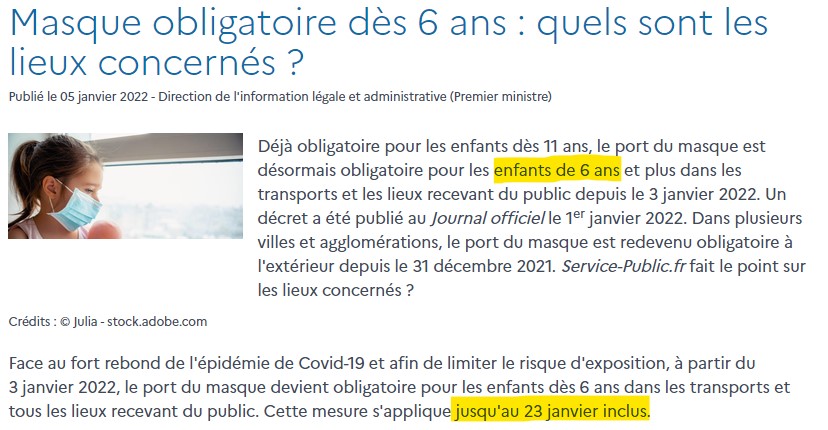
The wearing of masks is respected by almost 100% of the Malaysian population.
Most parents (not all) even gave the mask to young children under 2 years old.
Worse, in the maternity hospital, in September, some parents even gave the visor to the newborns, who were not even 24/48h old yet…
In Paris, the wearing of masks is not fully respected.
We met many people without masks, whether they were young, old, men or women.
Distancing is not as well respected in France as in Malaysia.
Currently, in mosques and prayer halls in Malaysia, we must always respect a distance.
In France, despite the 300,000 new cases per day, no distancing exists in the mosques.
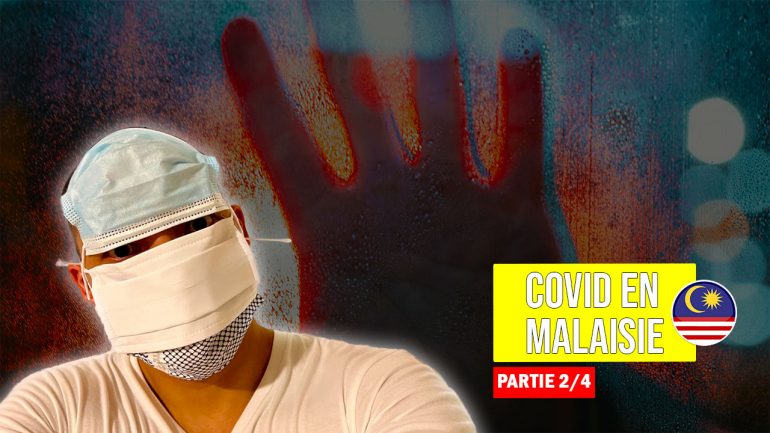
Vaccination in Malaysia and France
Very sensitive subject: vaccination.
We won’t go into details, but in Malaysia, it is almost mandatory.
Without vaccination, we are deprived of almost all activities: restaurants, gyms, shopping (except for basic necessities), travel to other states of Malaysia, access to parks, access to mosques and prayer halls, etc.
And unlike in France, a negative PCR test does not lift these restrictions, even though in France this is no longer the case.
A negative test does not entitle you to anything, nor does having contracted COVID.
In France, if you have had the COVID, this entitles you to a health pass valid for six months.
This is not the case in Malaysia.
False certificates
Contrary to France, it is almost impossible to make false vaccination certificates in Malaysia.
We can find some rare cases but it’s not like in France, where you can find fake pass offers on Snapchat etc.
In Malaysia, only a few approved centers are authorized to vaccinate: it is free if you go through the public centers, it is not free if you go through the few private centers (about 300RM – 60 € for the double injection of SINOVAC).
In France, doctors and pharmacists are authorized to vaccinate.
We do not have the possibility to choose the vaccine, unless you go through a private center, which can only offer Sinovac.
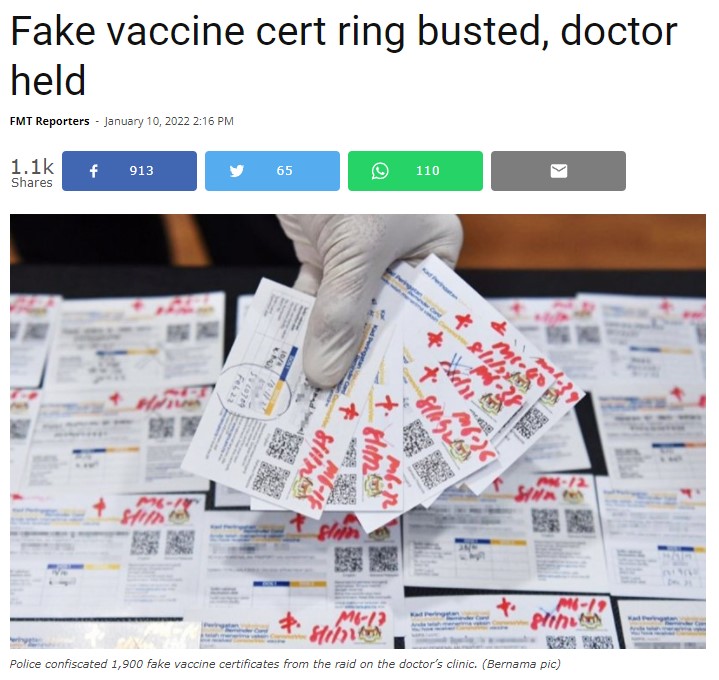
Malaysia recognizes several vaccines.
SINOVAC was used extensively at the beginning of the vaccination campaign.
But this vaccine is not recognized in France.
It is also used in Algeria, Morocco or Turkey.
It is recognized by Spain, Switzerland and several other European countries, but not by France.
To obtain a pass in France, it is obligatory to make an mRNA injection: 1 injection if you have 2 doses of Sinovac, 2 injections if you have only one dose of Sinovac.
Starting in February, people who have received two doses of Sinovac will have their status changed to “unvaccinated” if they do not take the third dose.
Nearly 89% of adolescents between the ages of 12 and 17 are fully vaccinated.
The campaign of
vaccination of children between 5 and 11 years old
campaign will start at the end of the month.
PCR tests in Malaysia and France
They have always paid off, at least for us foreigners.
The price for a PCR ranges from RM150 to RM250 on average, which is about €31 to €52.
As said before, a negative test does not entitle you to anything in Malaysia, if you are not vaccinated.
To enter Malaysia, the PCR test is mandatory at any age.
Contrary to France and many other countries such as Turkey, PCR tests are not required for children under 12 years of age.
Saliva PCR testing is not available for children under 3 years of age.
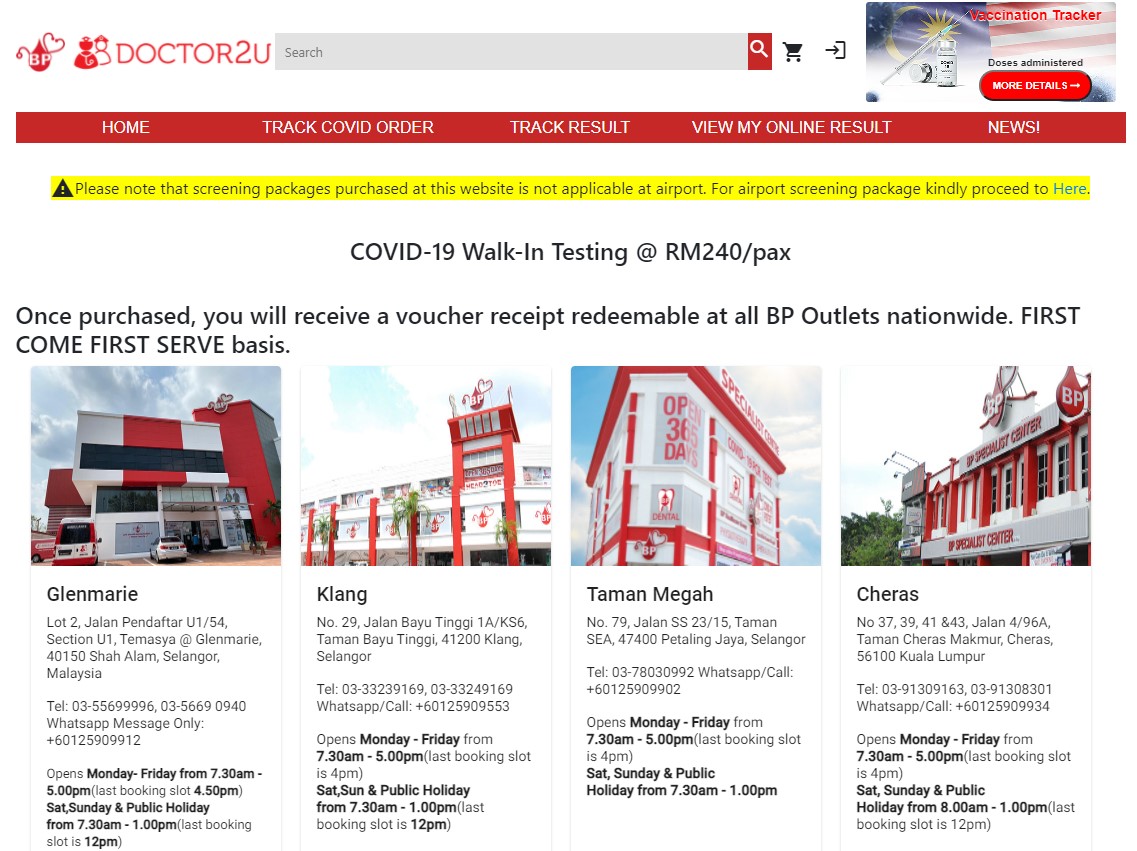
The COVID application on smartphone
In Malaysia, the use of the tracking application is almost mandatory.
This app aggregates the results of your PCR tests, your vaccination schedule, and also all the places you have recently visited.
Indeed, it is mandatory to scan a QR code before entering anywhere: whether it is a store, a restaurant, a gym, a park, etc., you must scan the QR code and perform a measurement of your temperature.
In France, no QR code is required except for restaurants. But not all restaurants comply with this requirement.
I went to the Quick in France, and nobody asked me for a pass.
The general atmosphere in everyday life
We feel a general fear much more present in Malaysia, than in France.
Personally, we find this fear exaggerated.
When, for example, you have a person who sprays himself 10 times with hydroalcoholic gel because he pressed the button on the elevator.
We have already seen people using sprays on themselves, normally reserved for objects, to disinfect themselves.
The Minister of Health had to issue a statement regarding the danger.
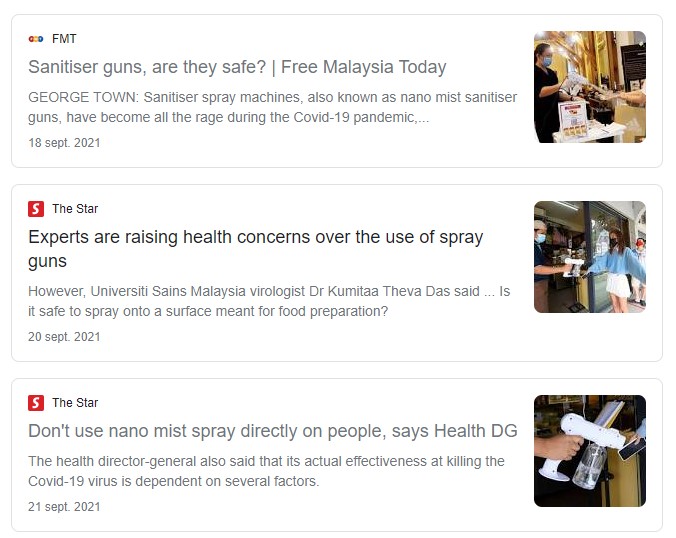
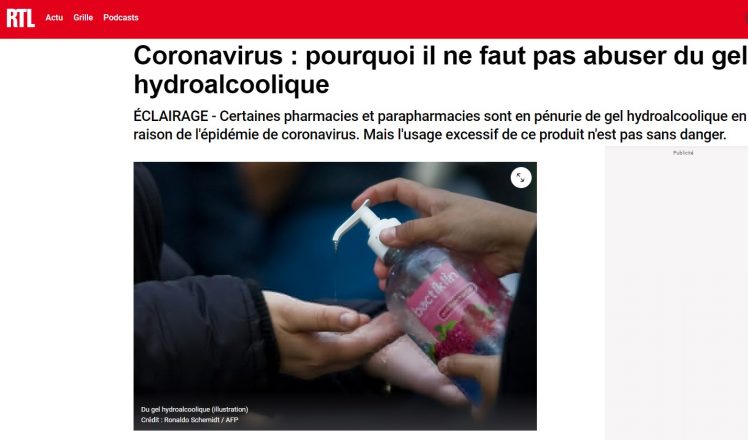
We see much less debate than in France, especially on TV.
Containment is stricter in Malaysia.
When many positives were detected in a residence, for example, it could be gridded, with barbed wire to prevent entry and exit.
During the first confinements, the military was deployed to monitor the population. Barricades have been set up to monitor entry and exit.
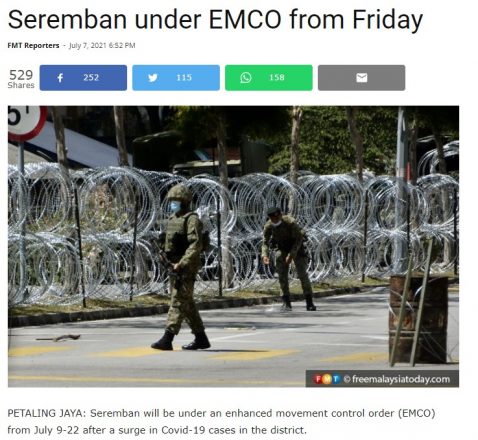
Today, life in Malaysia with COVID
Currently, the number of new cases in Malaysia is around 3000-4000 per day.
Malaysia has not (yet) experienced an Omicron wave like in France, where we had reached more than 300,000 new cases per day.
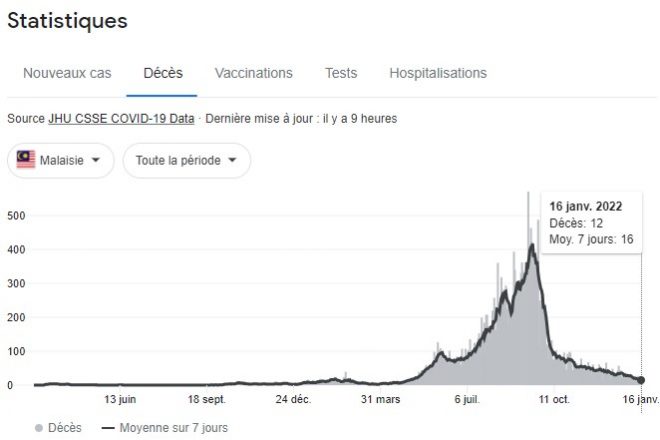
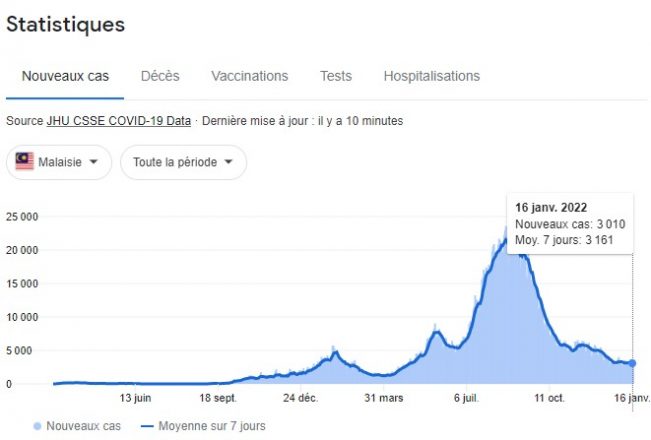
Today, vaccinated people can travel throughout Malaysia without restrictions.
However, depending on each condominium, different rules may exist.
For example, in our residence,access to the gym is by reservation only. We are allowed only 3 one-hour sessions per week, maximum.
The same applies to access to swimming pools, saunas, etc.
Are the borders open?
Currently, Malaysian borders are still closed to tourism except through the special Langkawi Travel Bubble program.
This program is similar to the SAND BOX in Thailand.
Anyone can enter Malaysia for tourism.
It is enough to stay 7 days minimum on the island of Langkawi.
You will be free to do whatever you want on the island: the island is quite big, and you should not be bored during the 7 days.
At the end of the 7 days, you can travel anywhere in Malaysia, after having done a PCR test.
The conditions to respect to come to Malaysia as a tourist
The few conditions to be met in order to travel through this program are
- be fully vaccinated,
- do PCR tests before arrival, then on arrival, then a test every day, alternated with a self-test (salivary RTK possible),
- book your hotel in Langkawi through an agency approved by the Malaysian authorities,
- have insurance that covers you for at least $80,000
Bonus: COVID in Turkey
As we lived in Turkey for 5 months during this health crisis, and as we returned in November 2021, we can also give some opinions on living in Turkey with COVID.
Personally, we think it’s going pretty well.
We would have preferred to spend part of 2021 in France or Turkey, especially between May and October 2021, when the restrictions were very present in Malaysia.
There are worse things than Malaysia. We invite you to see how covid is managed in Australia for example.
Health restrictions in Turkey
From the beginning of the crisis, Turkey was already manufacturing its own masks, and even distributing them to countries in need.
Turkey, to our knowledge, has never experienced a strict containment like in Malaysia: there was a containment with a curfew, between late November 2020, and early 2021. It was only on weekends for a few weeks, and it was only for Turkish residents.
Tourists were not constrained by the restrictions of residents.
On Alanya, some restrictions were applied for the elderly, including a curfew, when we were there in summer 2020.
Turks have the choice to be vaccinated or not.
There are few or no restrictions for unvaccinated people. A negative PCR test was usually sufficient for free movement.
People who were not vaccinated could be tested for free (residents).
Since a few days, non-vaccinated people do not need to present a negative PCR test to take transportation etc.
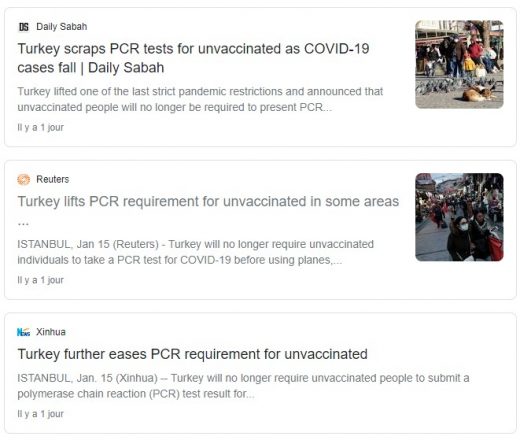
Turkey has produced its own vaccine: Turkovac.
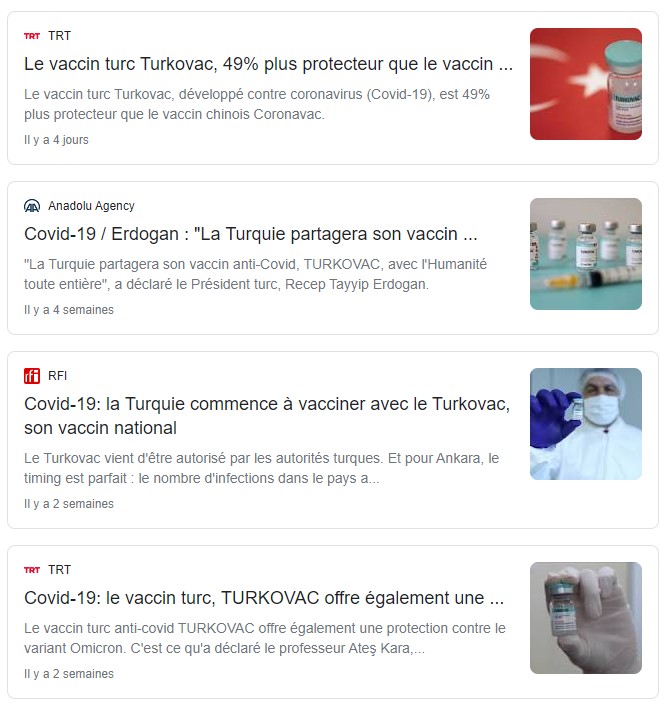
It will then be necessary to wait before knowing if this vaccine will be recognized in other countries of the world, knowing that the relations between Turkey and France are currently not very good.
In this health war, there are unfortunately political issues at stake.
Conclusion on COVID and expatriation
For many people, the management of COVID is now part of the criteria for choosing a country of expatriation.
The management of COVID has a real impact on daily life: between confinements, restrictions, freedom of movement, freedom of vaccination, etc.
Dubai is one of the countries that is also very popular at the moment: unvaccinated people can travel freely to this country.
It seems to me that in Mexico, it’s pretty cool too.
Let’s hope that this crisis will end soon.

